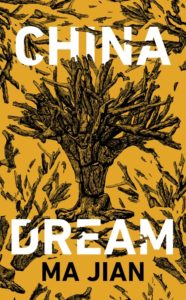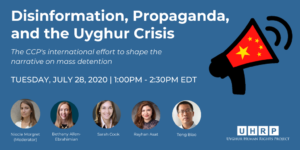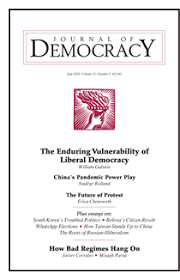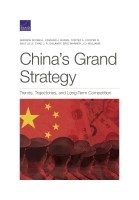China’s Grand Strategy: A ‘Carl Schmitt moment’?
The United States should prepare for an “ascendant” Communist-led China, according to a report released by Rand Corporation, a US government-funded think tank.
China’s leaders are convinced that their country is engaged in long-term competition with the United States and that the PRC confronts a soft power threat in the form of subversive U.S. ideas and concepts about individual rights and freedoms, as well as romanticized Western-style democratic political institutions. Western-style democracy, they contend, is a recipe for chaos and turmoil in China, notes a new RAND analysis, China’s Grand Strategy: Trends, Trajectories, and Long-Term Competition.
1. triumphant China, in which Beijing is remarkably successful in realizing its grand strategy
2. ascendant China, in which Beijing is successful in achieving many, but not all, of the goals of its grand strategy
3. stagnant China, in which Beijing has failed to achieve its long-term goals
4. imploding China, in which Beijing is besieged by a multitude of problems that threaten the existence of the communist regime.

The Chinese Communist worker. Pop art retro vector Credit: CSP
A tide of Chinese scholars have turned against Western-inspired ideas that once flowed in China’s universities, instead promoting the proudly authoritarian worldview ascendant under Xi Jinping, the Communist Party leader, The Times reports:
They portray themselves as fortifying China for an era of deepening ideological rivalry. They describe the United States as a dangerous, overreaching shambles, even more so in the wake of the coronavirus pandemic. They oppose constitutional fetters on Communist Party control, arguing that Western-inspired ideas of the rule of law are a dangerous mirage that could hobble the party. .. A number of these scholars, sometimes called “statists,” have worked on policy toward Hong Kong,…Their proposals have fed into China’s increasingly uncompromising line, including the security law, which has swiftly curbed protests and political debate.
 “We ignore these voices at our own risk,” said Timothy Cheek, a historian at the University of British Columbia who helps run Reading the China Dream, a website that translates works by Chinese thinkers. “They give voice to a stream of Chinese political thought that is probably more influential than liberal thought.”
“We ignore these voices at our own risk,” said Timothy Cheek, a historian at the University of British Columbia who helps run Reading the China Dream, a website that translates works by Chinese thinkers. “They give voice to a stream of Chinese political thought that is probably more influential than liberal thought.”
For China’s fifth-generation leaders, the importance of soft power is two-sided, RAND adds: on the one hand, strengthening legitimacy of the CCP-PLA-PRC by playing up nationalist goals, patriotic achievements, and Chinese values, while, on the other hand, counteracting dangerous Western ideas, such as democracy, human rights, and freedom of religion, say analysts Andrew Scobell, Edmund J. Burke, Cortez A. Cooper III, Sale Lilly, Chad J. R. Ohlandt, Eric Warner, and J.D. Williams.

National Endowment for Democracy (NED)
China’s use of influence operations or political warfare has received considerable attention in recent years. The CCP-PLA-PRC’s smart power generation appears to be more focused than their predecessors on using the full range of both hard and soft power instruments of national power at their disposal to further the regime’s goals overseas, it adds, citing the National Endowment for Democracy’s concept of “sharp power.”
In the wake of tit for tat consulate closures, Christopher Walker, Vice President for Studies and Analysis at the National Endowment for Democracy and Zachary Hosford, Deputy Director of the Asia Program at the German Marshal Fund, discuss growing tensions between the United States and China and the threat that an aggressive Beijing poses to democracies around the world, VOA adds.
The system is quite effective at cracking down on a range of troublemakers—both actual and potential. Known or suspected dissidents are monitored and harassed, the RAND analysts add. Even ethnic minority figures who have sought to abide scrupulously by Chinese laws and work within prescribed channels have been deemed dangerous. A prime example is Rebiya Kadeer, a highly successful Uighur businesswoman who eventually went into exile.
The likely use of forced labor from detained Uighurs and other Muslims is expanding China’s textile exports, CSIS reports (below) in an overview of forced labor in Xinjiang.
 Uyghur women both inside Xinjiang and around the world have accused the Chinese government of a campaign of abuse, including forced sterilization, cultural indoctrination and incidents of sexual violence, CNN reported last week.
Uyghur women both inside Xinjiang and around the world have accused the Chinese government of a campaign of abuse, including forced sterilization, cultural indoctrination and incidents of sexual violence, CNN reported last week.
The author Anne Applebaum has compared Western indifference to what is happening in Xinjiang today with the wilful determination of European governments and the Vatican to ignore the famine Joseph Stalin engineered in Ukraine in 1932-33, and the Nazi concentration camps a decade later, note Anne-Marie Slaughter, a former director of policy planning in the U.S. State Department (2009-2011), and Wardah Khalid, a Security Fellow at the Truman National Security Project. Viewed against this background, the United States’ willingness to condemn China’s behaviour and impose costs for it, even if only with individual sanctions, is a step in the right direction, they write for Project Syndicate.
Many of China’s China’s new authoritarian scholars make respectful nods to Carl Schmitt, the German legal theorist who supplied rightist leaders in the 1930s and the emerging Nazi regime with arguments for extreme executive power in times of crisis, The Times adds, as Ryan Mitchell, an assistant professor of law at the Chinese University of Hong Kong, documented in a recent paper.
 “They’ve provided the reasoning and justification,” said Fu Hualing, a professor of law at the University of Hong Kong. “In a way, it’s the Carl Schmitt moment here.”
“They’ve provided the reasoning and justification,” said Fu Hualing, a professor of law at the University of Hong Kong. “In a way, it’s the Carl Schmitt moment here.”
The four scenarios outlined above could produce any one of three potential trajectories in U.S.-China relations, the RAND report adds, citing Xi Chen’s Journal of Democracy article, “China at the Tipping Point: The Rising Cost of Stability,” (Vol. 24, No. 1, January 2013): parallel partners, colliding competitors, or diverging directions:
- The parallel partners trajectory is a continuation of the state of U.S.-China relations in 2018. This trajectory is most likely to occur with a stagnant China and probably an ascending China.
- The colliding competitors trajectory is most likely to manifest in a triumphant China scenario in which Beijing becomes more confident and assertive.
- The diverging directions trajectory is most likely to occur in an imploding China scenario because Beijing will be preoccupied with mounting domestic problems. RTWT
 China’s grand strategy is best labeled “national rejuvenation,” and its central goals are to produce a China that is well governed, socially stable, economically prosperous, technologically advanced, and militarily powerful by 2050, the report adds, outlining four scenarios of what China might look like by 2050:
China’s grand strategy is best labeled “national rejuvenation,” and its central goals are to produce a China that is well governed, socially stable, economically prosperous, technologically advanced, and militarily powerful by 2050, the report adds, outlining four scenarios of what China might look like by 2050:


Nenhum comentário:
Postar um comentário